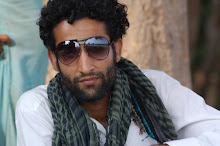

NEW DELHI — Kashmir erupted on Monday in the worst violence since separatist protests began sweeping through the disputed Himalayan region three months ago, with the authorities partly blaming reports of Koran desecration in the United States for the inflamed tensions.
The bloodshed, which came as Indian leaders were searching for a way out of the Kashmir crisis, left at least 14 civilians and two security officers dead and at least 60 people injured in clashes, the authorities said. In one town, Tangmarg, the authorities said officers opened fire after protesters set a school and other government buildings ablaze.
Kashmir has had almost daily Muslim demonstrations since June, with angry crowds defying strict government curfews to throw stones or voice their anger. Protesters range from separatists who want an independent Kashmir state to others demanding that India’s central government remove thousands of Indian paramilitary troops, release political prisoners and lift laws that grant immunity to security officers. Before Monday, at least 73 people had been killed as officers fired live ammunition against stone-throwing protesters.
On Monday, state authorities sought to differentiate the new violence as separate from the other protests, linking it to the reports of the desecrated Koran. Indian authorities had fretted over the planned Sept. 11 burning of a Koran by a Florida pastor, Terry Jones. Officials had asked Indian television channels not to broadcast such an inflammatory act, and Mr. Jones ultimately canceled his plans.
But S. S. Kapur, chief secretary of the Jammu and Kashmir State government, said reports by an Iranian state-run English language news channel, Press TV, of Koran desecration in the United States may have inflamed passions in Kashmir. Mr. Kapur denounced the alleged desecration and said authorities had since banned Press TV cable broadcasts in Kashmir. Later in the day, the state cabinet released a statement asking for calm.
It was unclear whether the protesters were responding to Press TV’s television broadcasts or its Internet accounts of the desecration. Press TV later confirmed on its Web site that local cable operators in Kashmir had restricted its broadcasts.
“Today was the spontaneous religious reaction over the issue of burning of the Koran, which was on television,” Taj Mohi-ud-Din, a senior spokesman in the Jammu and Kashmir government, said in a phone interview.
The sequence of events remained unclear late Monday. Angry protesters are said to have burned a Christian school in Kashmir. In the state of Punjab, a strict curfew had been instituted in an area with a large Muslim population after angry protesters, responding to rumors about the desecrated Koran, attacked a church and a police officer.
In New Delhi, the United States ambassador, Timothy J. Roemer, cited news reports that “one misguided individual” had torn pages out of a Koran in the United States and condemned the attack as “an abhorrent act.” He also expressed dismay over the reported attacks against churches in Kashmir and Punjab.
“We strongly support local authorities’ appeal for calm and an end to the violence,” he said in a statement.
The escalated mayhem in Kashmir further complicates efforts to bring stability back to the region, long a source of conflict between India and Pakistan.
In New Delhi, top Indian officials convened to weigh proposals to reduce the powers of the armed forces and ease tight security measures in some districts of the region as steps to defuse the crisis. Prime Minister Manmohan Singh offered a conciliatory message, promising talks with groups that reject violence.
On Monday, Mirwaiz Umer Farooq, a moderate Muslim leader, condemned the attack on the Christian school and called on Kashmiris not to be provoked into violence. “It is a very confused situation here,” he said in a phone interview. “Nobody knows which agency is doing what.”
State authorities have blamed Mr. Farooq for violent protests on Saturday during Eid al-Fitr, the festival that ends Ramadan. But Mr. Farooq said those protests were modest compared with the largely peaceful observation of the holiday.

No comments:
Post a Comment